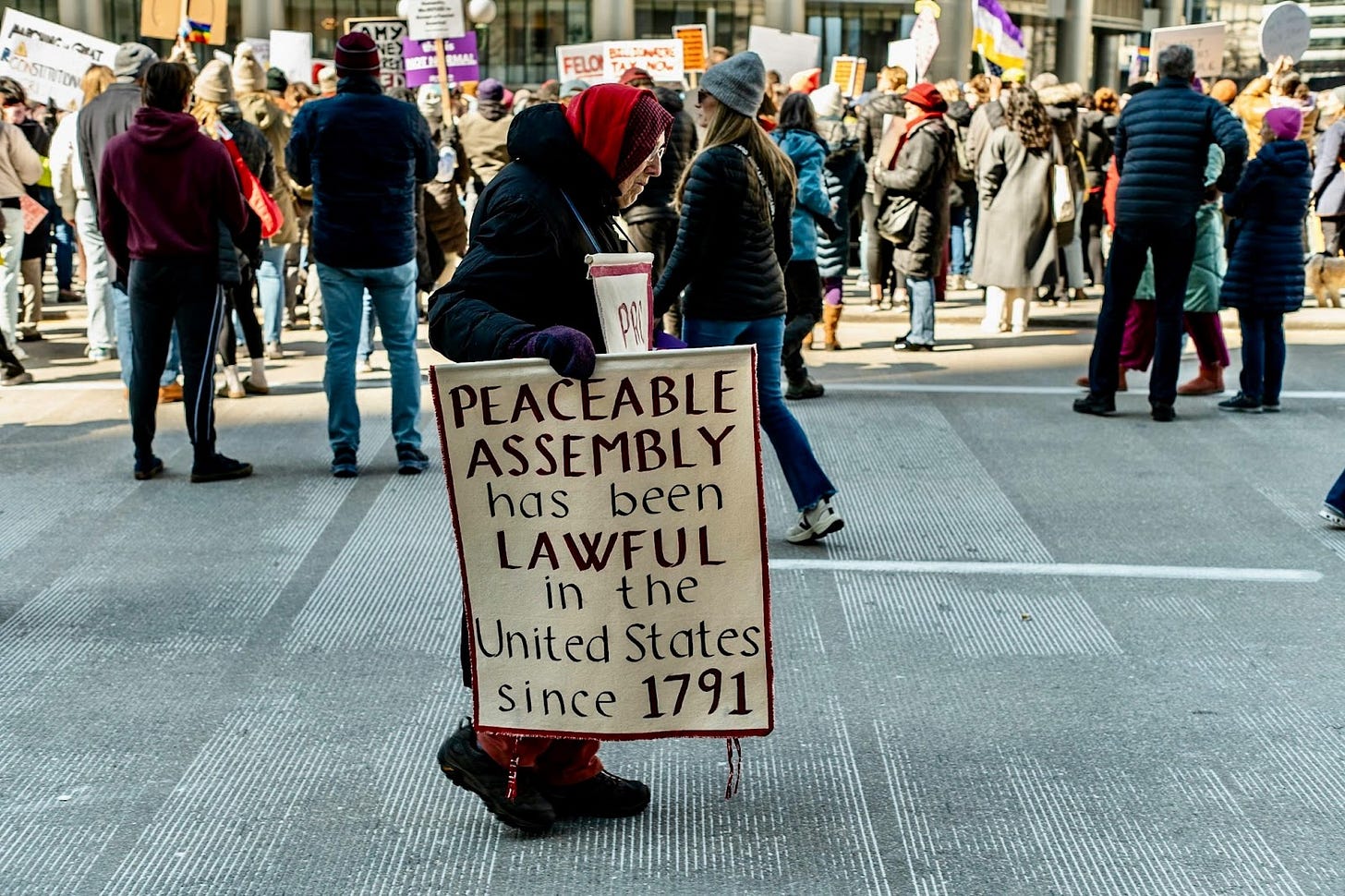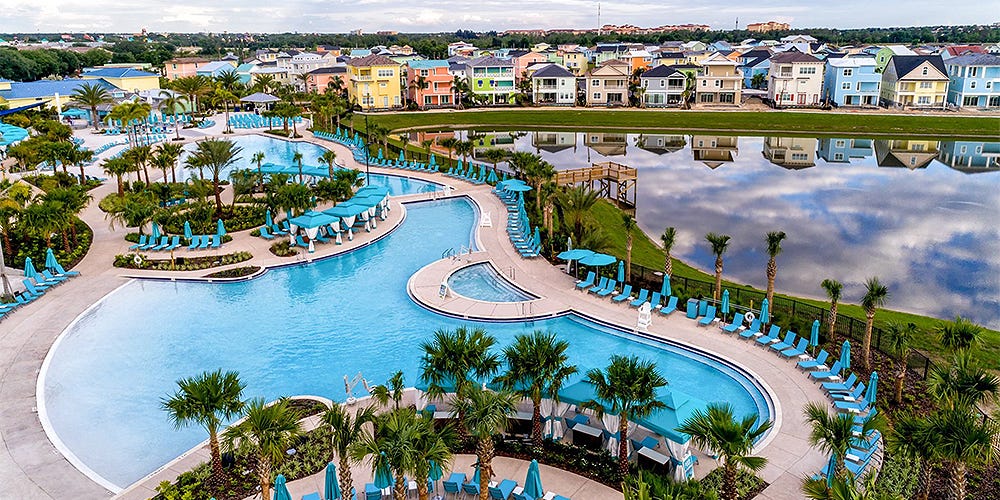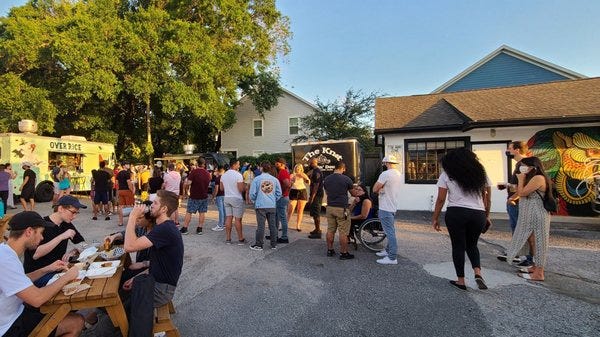A Nation Without a Founding?
The founders are MIA in MAGA-world
I admit I am not much for science fiction, but I am a big fan of A Canticle for Leibowitz, the classic 1950s sci-fi novel about a futuristic monastery in the desert Southwest devoted to preserving the fragile fragments of 20th-century scientific knowledge. The book is set in the future, centuries after a global nuclear war nearly destroyed all humanity. In the aftermath of the war, a movement called the Simplification sets out to abolish learning, burn books, murder literate people, wreck machines, and destroy scientific facilities. However, a surviving scientist, Isaac Edward Leibowitz, manages to save what he can and begins a monastic order devoted to preserving the fragments of modern knowledge, the Albertian Order of Leibowitz. The book follows several ages of later monasteries in the Order as they try to make sense of the fragmented epistemic inheritance left to them by their founder and apply it to entirely different conditions.
I often feel like this is how we are related to the founders of the United States today. They are to us a fragmented inheritance. So much of the vital work to do concerns trying to make sense of constitutional legacies and apply them to an age and context altogether different from that which came before. To me, this is what it means to belong to the American project today.
For a long time this kind of attention to the founders was associated, rightly or wrongly, with the American Right, identified with organizations like the Federalist Society and voices like George Will or Peggy Noonan. This was when the Right was more or less identical with a form of political conservatism. Today, however, when the American Right has turned in a decidedly apocalyptic and reactionary direction, it seems to have largely abandoned the constitutional project. The founders are missing in action in MAGA-world.
Indeed, it is striking how infrequently MAGA-world references the founders. I recently did a search for how many times Donald Trump has mentioned James Madison in his speeches (campaign or presidential) and found, stretching the criteria a bit, around five instances. George Washington does better, getting around 25 mentions, but they mostly include things like these comments from a Trump press conference:
POTUS referenced Bill O’Reilly saying Trump is the greatest president ever in history, and George Washington coming in second. “Thank you, Bill,” he said.
Or this classic from Trump’s commencement address at the University of Alabama last May:
I was 28 when I took my first big gamble to develop a hotel in Midtown Manhattan, the Grand Hyatt, and it worked out incredibly well. But I was very young at the time. I was, like, a very young person in sort of an old-person business. Steve Jobs was 21 when he founded Apple. Walt Disney was 21 when he founded Disney. James Madison, James Monroe, Alexander Hamilton, Thomas Jefferson—they were no older than 25 when they began the journeys that etched their names into the history books for all time.
Apart from being yet another instance of questionable historical knowledge coming from our POTUS (Jefferson was in his mid-30s when he wrote the Declaration, etc.), it is clear here that Trump thinks of Madison, Monroe, Hamilton, and Jefferson not really as founders, but as more like entrepreneurs, as though founding a nation, starting a tech company, or doing property development are more or less the same thing. Even Machiavelli would blush.
J.D. Vance, the designated heir of MAGA, is a Yale-trained lawyer. You would expect him therefore to frequently reference the founders. But he tends instead to talk about the blood and soil of his old Kentucky home. And at the recent Charlie Kirk memorial, America and American values were mentioned regularly, but the American founders were not once mentioned in any of the major speeches given: Jesus and Socrates, yes, but not Jefferson or Hamilton.
My point here is that as a political movement, MAGA seems to live in a country without a founding, and therefore in a country without a sense of the historic American project.
It is tempting to say that this must be because reckoning with the founding would be inconvenient for a people so seemingly bent on crowning a king, but, while there may be a bit of truth in such cynicism, I think it misses the pathos of the cultural desire and despair endemic to MAGA. The desire, as best as I can tell, is for a kind of membership status in a great new political movement. Here Donald Trump is the political equivalent of the Visa Gold Card, a form of symbolic capital you pay for regardless if it makes good business sense. The counterpart despair in MAGA is over the possibility of thicker forms of national and historical belonging.
I do not intend to let the Democrats off the hook here. Their pallid campaigning often amounts to no more than a call to join a national insurance club or identitarian interest groups, depending on the day. And while they talk about saving democracy, they are too often reluctant to talk about the founders for fear of being labeled structural bigots. I need to take up the Left’s “founding problem” in a future post, but it is the Right that’s in charge right now, and it is a Right that is without the founders.
Since Civic Fields got back in full swing this fall, we have been probing American political culture through the cities of Las Vegas and Boston. For several weeks, Matt Pitchford walked us through Boston, a city, as he has shown us, of crooked political, historical, and cultural trails. Matt has been making a case here: the kind of thick historical complexity that Boston exemplifies invites belonging, not just touring, and citizenship, not just consuming. To belong to a vital political order, like belonging to a pious monastic order, means wrestling with the fragments of the past and trying to make sense of them for the present.
The contrast with Las Vegas couldn’t be stronger. Las Vegas is a city for consumption, plain and simple. It has no real founding. Rather, it was developed in the 1930s, largely by criminal organizations, to give workers who were building the Hoover Dam a place to let loose. After World War II, when Nevada became a major site for bomb testing and military exercises, it served the same role for military men and defense contractors. From the get-go, Vegas was built to be consumed. Boston, by contrast, was built to be lived in. Boston is a city built by founders, but Vegas is an economic enterprise built by developers. As you know, the world of Trump is much closer to the latter than the former.
So, I am wondering: Are the two Americas today not really red and blue, as we are constantly told, but an America with a sense of founding and an America without one? One for citizenship, another for consumption? One about participation in a broader constitutional project, and another about collecting identitarian brands? One about reckoning with history, past and future, and another about the projection of consumerist fantasies?
Vegas and Boston are types representing a larger American divide.
For reasons of parental love, I have spent many weeks in the Orlando area over the last half-decade or so. I’ve had to spend much of that time in Kissimmee, south of downtown, closer to Disney World. There, I’ve passed many times a development called “Margaritaville Cottages,” where, according to the glossy signage, you can “Stay in Paradise.” Those condos, at least a few years ago, started at $500,000. What can you get for half a million dollars? A poorly constructed but beautifully painted row-style condo, access to a really big swimming pool (during regular operating hours), and, presumably, the opportunity to never have to mow your yard again. Florida is bursting with such “developments.” Can you belong to a development? Sort of. It’s called “membership,” or perhaps “ownership.” It’s a club, not a community.
But the Orlando area is more than developments. If you drive up from Kissimmee to downtown and then walk just north, you can find old brick streets lined with cute old cottages, a few big old manses, and lots and lots of majestic mature trees. On a walk one evening through these neighborhoods, I even ran into a fox. These are neighborhoods that people prize, belong to, and may well spend a lifetime in.
I am not being romantic here. Nor am I being snobby. If someone’s thing is colorful new construction and big pools, all safely secured behind key pads and gates, so be it. But this preference cannot minimize the profound differences between the Margaritaville Cottages and North Orlando, or Vegas and Boston.
It is not just about taste in housing or neighborhood amenities. At root, it is about the relationship of persons to place and community—that is, it’s about foundings.
The Margaritaville Cottages have a beginning, but they have no founding. You can buy into the resort community but not be born into a larger story. North Orlando, by contrast, has a founding—indeed, a set of foundings and refoundings. You can study the history of the area and find reams upon reams of material, story after story—ups, downs, and all arounds. The history of the Margaritaville Cottages, by contrast, will turn up only a set of drawings, permits, and lawsuits.
Foundings matter. They are means of anchoring us to something bigger than us. It is a great privilege to be born into them. This country has had several foundings. There was the original colonization, the founding after the American Revolution, a second founding upon Jefferson assuming the presidency in 1801, a refounding after the Civil War, another founding when Wilson got us into World War I and made us a global power, another with FDR and the New Deal, and yet another with the massive civil rights victories won in the 1960s. Each founding is an anchor point for belonging to the American project, however complicated that belonging might be.
But MAGA seems really quite uninterested in foundings or, for that matter, belonging to any larger American project with real historical teeth. The endless reactionary projection of national fantasies is exhausting, but it is far simpler.
The Simplification movement is here.




